| Gemstone Chart |
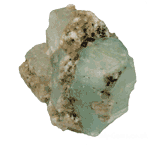 Natural Beryl Natural Beryl
Beryl is a semi-precious clear gemstone which usually comes in greens, yellows, and occasionally pinks, ands various shades thereof.
Color: Green, blue, pink, yellow, red
Categories: semi-precious stone
Chemical Composition: Be3Al2(SiO3)6
Crystal Group: Hexagonal
Refractive Index: 1.577(+-.016), 1.583 (+-.017)
Hardness: 7.5
Density: 2.67-2.745
Occurrence: Austria, Columbia, Brazil, Russia, East Africa, Australia, Madagascar, South Africa, Zimbabwe, India, Pakistan, Zambia, Nigeria, U.S.A., Afghanistan
| 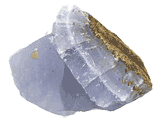 Natural Chalcedony Natural Chalcedony
Chalcedony is a catch all term that includes many well known varieties of cryptocrystalline quartz gemstones. They are found in all 50 States, in many colors and color combinations, and in sedimentary, igneous, and metamorphic rocks.
Color: grayish, purple, white, green, blue, lavender, yellow, brown
Categories: semi-precious stone
Chemical Composition: SiO2
Crystal Group: Hexagonal
Refractive Index: 1.530 - 1.539
Hardness: 6.5
Density: 2.57 – 2.64
Occurrence: Brazil, U.S.A. Germany, India, Uruguay, Austarlia, Egypt, Italy, Scotland, South Africa, Namibia, Madagascar, Mexico, Tanzania, and many other localities throughout the world.
| 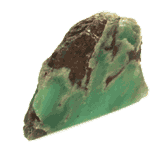 Natural Chrysoprase Natural Chrysoprase
Chrysoprase is a gemstone variety of chalcedony or cryptocrystalline quartz, colored by trace amounts of nickel.
Categories: semi-precious stone
Chemical Composition: SIO2
Crystal Group: Hexagonal
Refractive Index: 1.544 - 1.553
Hardness: 7
Density: 2.65 - 2.66
Occurrence: Australia, Tanzania
| 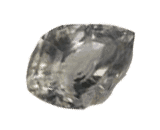 Natural Musgravite Natural Musgravite
Musgravite is an extremely rare member of the taaffeite family that was discovered in 1967 in the Musgrave Range of South Australia. It is also one of rare gemstones that have been sought these years for the collection at GAAJ laboratory.
Color: pale olive green, grey, mauve, grey purple
Categories: semi-precious stone
Chemical Composition: (Fe2+,Zn,Mg)2Al6BeO12
Crystal Group: Hexagonal
Refractive Index: 1.717 - 1.739
Density: 3.68
Occurrence: The Musgrave Mountain Ranges in Central Australia
| 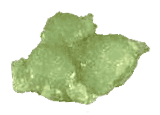 Natural Prehnite Natural Prehnite
Prehnite is a hydrated calcium aluminum silicate that occurs in a soft yellow-green to apple-green color.It was a rare gemstone, most prehnite is translucent but transparent specimens are sometimes found.While you are unlikely to find it in your local jewelry store, gemstone dealers often have some supply. Deposits are found in South Africa, Australia, China, Scotland and the United States.
Color: yellow green, brown, yellow brown, oil green
Categories: semi-precious stone
Chemical Composition: (CA2Al2SI3O10(OH)2)
Crystal Group: Orthorhombic
Refractive Index: 1.61 - 1.64
Hardness: 6
Density: 2.80 - 2.95
Occurrence: China, France, U.S.A., Scotland, Australia
| 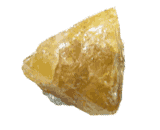 Natural Scheelite Natural Scheelite
Scheelite is a calcium tungstate mineral with the chemical formula CaWO4.With a hardness of 4.5 to 5 on the Moh's ScaleScheelite is a rather soft stone. Traditionally, it was considered a collector's gem and unsuitable for use in jewelry.
Color: Yellowish-white, brownish, orange yellow
Categories: semi-precious stone
Chemical Composition: CaWO4
Crystal Group: Tetragonal
Refractive Index: 1.918 - 1.937
Hardness: 4.5 - 5.0
Density: 5.9 - 6.1
Occurrence: Czechoslovakia; Italy; Switzerland; Finland; Cumberland, Cornwall, England; Santa Cruz, Sonora, Mexico; South Dakota, Conneticut, Colorado, Utah, California, Arizona, USA; New South Wales and Queensland, Australia; Mian Yang, and Ping Wu, Sezhuan, China; Hollinger Mine, Ontario, Canada;
| 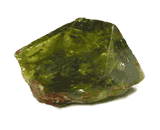 Natural Sphene Natural Sphene
Sphene is also known as calcium titanium silicate.It is named from the greek word for wedge, because of its typical wedge shaped crystal habit.Because of it's high dispersion and refractive index, a well cut sphene can display stunning brilliance. Sphene is somewhat soft and as a result is more suitable as a pendant than as a ring stone. Sphene is rarely very clean.
Color: Green, yellow. brown
Categories: semi-precious stone
Chemical Composition: CaTiSiO5
Crystal Group: Monoclinic
Refractive Index: (1.885-1.990,)-(1.915-2.050)
Hardness: 5.5
Density: 3.52-3.54
Occurrence: Austria, Dheirene-Madagascar, India, USA, Brazil.
| 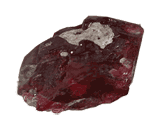 Natural Spinel Natural Spinel
Spinel is the magnesium aluminium member of the larger spinel group of minerals. It has the formula MgAl2O4.Pure spinel is white, but impurities give it a wide range of colors.Almost all colors are used in jewelry, but the most valuable and popular color is the deep red. Spinel is cut into gems for use as jewelry. The deep-red variety, known as ruby spinel, is the most prized form.
Color: orange, pink, black, blue, lavender, mauve, greenish blue, and vivid red
Categories: semi-precious stone
Chemical Composition: MgAl2O4
Crystal Group: Cubic
Refractive Index: 1.718 (-.006,+.044)
Hardness: 8
Density: 3.60 (-.03, +.30)
Occurrence: Mogok, Burma; Sri Lanka; Amboseli district, Kenya; Jemaa district, Nigeria; Matombo, Umba, and Tunduru Tanzania; Hunza, Pakistan; Pamir range, Tajikstan; Luc Yen, Vietnam; Madagascar; Australia; Sweden; Brazil.
|
|
